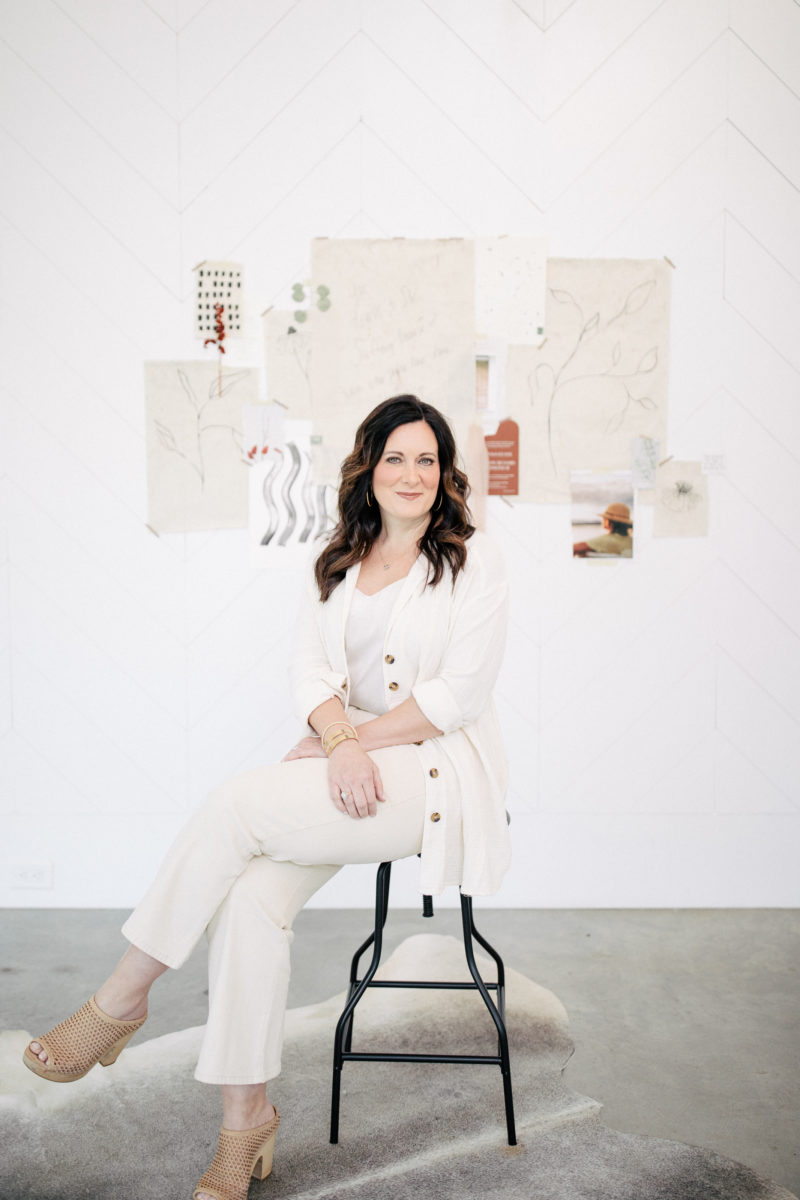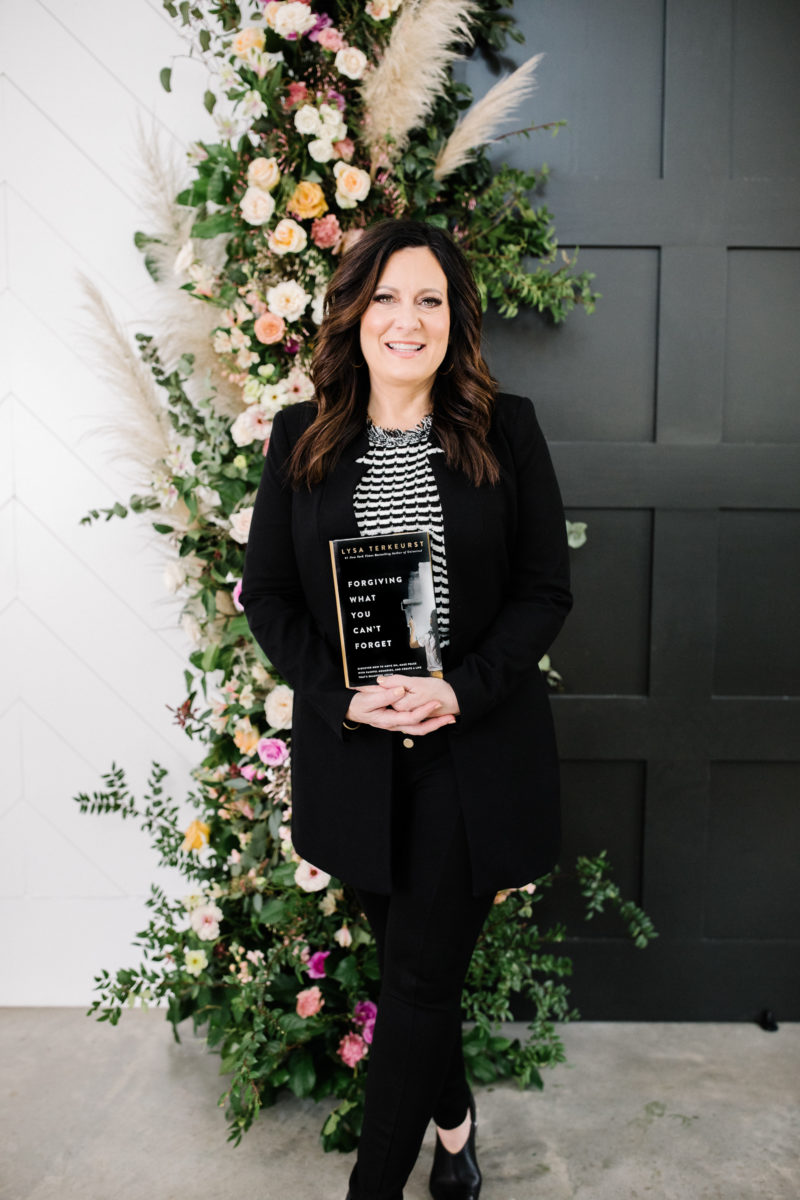The holiday season is full of joy for many of us, but it can also bring up painful memories that we want to leave behind. From tense family moments to petty fights with friends and even to hurtful conversations that left us feeling lonely, there’s some memories that we just want to leave in the past. Of course, that can be a lot easier said than done.
For many of us, fractured relationships have been a huge part of life this year. Sometimes the breaks were small, like exploding at a roommate after the dishes piled up again. Sometimes, the break was much deeper and more painful. And with those breaks comes the need to re-learn what it means to forgive.
Lysa TerKeurst sat down with RELEVANT to tell us about her book, Forgiving What You Can’t Forget, the marked moment when she chose to forgive and how we can do the same.
Can you tell us a little about this book’s origin?
I think this message found me because I needed to work on forgiveness. Here’s the thing that makes forgiveness so complicated: The minute we say the word forgiveness is the minute that we start thinking of all of the places in our heart where we’ve been deeply wounded and the people that have hurt us. Instantly, the very idea of forgiveness can make people back up, cross their arms and like, “Uh-uh.” I think a lot of us say, “It’s too soon to forgive,” until we say, “It’s too late to forgive.” But it always seems like we can’t quite find that perfect place in the middle to forgive.
When I started to really dive into God’s Word to see what forgiveness is and what it isn’t, I found myself looking for loopholes. “Certainly there are some exceptions, right?” I found myself so very resistant to forgiveness. As I was making my way through this journey, I thought, “I don’t think I’m the only person that when they hear the word forgiveness the first thing they feel is resistance.” I wanted to write a really honest book starting at that place.
What is the appeal to resisting forgiveness? Why do we want to hold onto the anger?
Bitterness can feel good. You feel like it’s a protective barrier against someone that’s hurt you. When someone has hurt you and you don’t want them to get close enough to be able to hurt you again, being bitter towards them can feel good. “I’ll show you,” you know?
You want that person to learn those lessons. Not just for your sake, but for the sake of all mankind. “The scales of justice will not tilt back in balance until this person sees how wrong they are and recognizes that they should never have done this.” Treating them with this bitter barrier is almost the only way you can figure out to protect yourself and to teach that person a lesson.
Very rarely do we have that epic moment where we get to present all the proof, then the other person falls down in a heap of repentance and sorrow. Life doesn’t work out that way. As long as I’m holding onto my proof, then it can turn into bitterness. I know I’m healing when I’m willing to trade that proof of how wronged I was for perspectives of experiential learning.
Do we need to relinquish our need for justice in order to truly forgive someone?
What I’m learning is, it’s not so much that we have to release our need for the other person to be taught the lessons they should learn so they don’t keep hurting other people. It’s just recognizing who needs to teach those lessons and who can teach those lessons effectively. It’s not me. God tells us, “Vengeance is mine, declares the Lord.” In other words, mentally place that person in God’s hands and give God that assignment. God’s the only one who can exercise justice with an equal measure of mercy.
How do you forgive someone you don’t feel particularly safe around?
There’s a difference between forgiveness and reconciliation. While forgiveness is a command by God, reconciliation is very dependent on a whole list of factors. Forgiveness and reconciliation don’t always hold hands. It may not be safe to reconcile with that other person. It may not be possible to reconcile with that other person. Reconciliation is going to be a process where two people are willing to come together and do the hard, holy, humble work of putting a relationship back together. If both people aren’t willing to do that hard, humble, holy work then forgiveness is possible, but reconciliation may not be possible. We have to remember that forgiveness is when we decide to unhitch our healing from another person’s choices. We don’t have to wait for that other person to learn the lesson, say they’re sorry or even realize what they did was wrong.
Reconciliation is deciding to reattach, in some capacity, where we are allowing that other person’s choices to affect us. Certainly we can draw boundaries in that relationship. Just because we forgive, that does not mean that that relationship is automatically repaired, nor does it mean that the trust is automatically reestablished. Trust is time plus believable behavior, and neither can be rushed.
We’ve gone through a few rounds of what forgiveness isn’t. So what is forgiveness. What does it practically look like?
Forgiveness is both a decision and it’s a process. We make the decision to forgive. That’s us being obedient to God. We have a marked moment in time where we’re saying, “I’ve decided I have suffered long enough because of what other people have done to me. So I’m going to sever myself from this unforgiveness attachment to this source of suffering. I am going to walk in healing.”
Practically speaking, we don’t start with forgiveness. We start with our pain. I say: list out all the facts of how you’ve been hurt and then through them go one by one by one. How I like to say it is, “I forgive this person for this fact of how they’ve hurt me. And whatever my feelings will not yet allow for, the blood of Jesus will surely cover.”
The reason I add that last part in is because oftentimes my feelings don’t want to cooperate. Hurt feelings don’t often want to cooperate with holy instructions. We have to remember that forgiveness is not based on our determination, gritting our teeth. We can’t just decide, “Oh, I’m just going to do this.” Right? Forgiveness is our cooperation with what Jesus already did. We have to remember, we ask for God’s forgiveness for us. And as God’s forgiveness flows to us, we have to let it then flow through us. Forgiveness is a decision, a marked moment in time, but then forgiveness is also a process.
You hear a lot about how good forgiveness feels but instant relief has not been my experience with forgiveness. Is that feeling waiting for me at the end of a process?
It hasn’t been my experience that it immediately feels good, no. I think the part of it that feels good to me is to know that I am taking the right steps to walk toward healing. But feelings are indicators, they’re not dictators. I don’t want the feeling to say, “Oh, because you don’t feel joyful, then your forgiveness didn’t work.” That’s not true. When you make the decision to forgive, you are being obedient to God.
I don’t make the goal to feel good. I make the goal to walk toward healing. My goal is to help people see beautiful again, because bitterness, anger, resentment, grudges, frustrations and unforgiveness darkens our outlook on life. If we want to see beautiful again, we have to go through this process of forgiveness.
 Your journey pursuing forgiveness started at a surprising, maybe even a counterintuitive time. Can you tell me a little bit about that?
Your journey pursuing forgiveness started at a surprising, maybe even a counterintuitive time. Can you tell me a little bit about that?
I showed up at my counselor’s office and my marriage had been blown up because of some decisions my husband made to be unfaithful in our marriage. I was in a very devastated place. I sat down across from my counselor and he said, “Lysa, do you want to heal?” And I said, “Yes, I do want to heal.” And he said, “Well, then today’s a great day to work on forgiveness.” And I thought back to myself, “Are you high? Are you crazy? I can’t forgive. I don’t know how this story is going to turn out. I don’t know which direction my forgiveness would need to go in. Are we going to stay together or are we not going to stay together?”
At that point, he wasn’t wanting to stay together. I was just thinking, “I don’t think I’m done hurting over this.” But that’s when my counselor really started to help me see it’s not about knowing how the story’s going to turn out, it’s about the pain that you’re in right now. So we started with the pain. Then I started to see that the only way for me to fully acknowledge this pain, to really sweep my heart clean of all of this chaos, was to start this journey with the step of forgiveness. I was very resistant, but I’m so thankful that’s where I’ve started.
Do you have advice for people who know they need to seek forgiveness but don’t really know how to do that?
If it’s possible to have one of those vulnerable conversations with someone that you’ve hurt, I think the very best gift that you can give them is ask them, “How did this hurt you? Or how did this make you feel?” And when they say it, the very best thing to say back to them is, “I believe you.” That may not have been your intention, but if that was their experience, just say, “I believe you. And I’m so sorry that my actions made you feel that way. Will you please forgive me?” And then you can ask them, “Do you have it to give for me to share with you my real intention? Because it wasn’t my intention to hurt you.” I think that’s where a real conversation can happen. I think if we can be patient enough to listen to, acknowledge and to believe that the experience that they had was hurtful and then to apologize, and then to ask if they have it to give for us to share our real intention, that’s where productive conversations can happen.

























